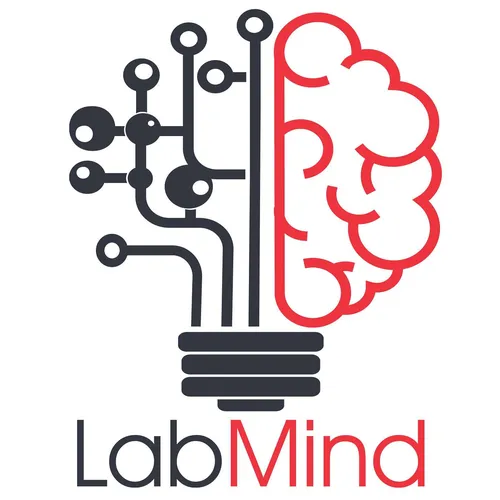
LabMind
Join Dr. Brian Jackson, adjunct professor of pathology at the University of Utah and a medical director at ARUP Laboratories, as he interviews some of the top minds in diagnostic laboratory medicine. Listeners are privy to personal anecdotes and creative insights into important challenges facing laboratories and clinicians.
- Update frequency
- every 23 days
- Average duration
- 33 minutes
- Episodes
- 96
- Years Active
- 2018 - 2025

An Interview With Cherise Shockley: How Laboratory Data Can Empower Patients
As laboratory professionals, we’re often focused on our critical role as part of the healthcare team in delivering results to providers. But, do we ever stop and think about the power laboratory data…

An Interview With Dr. Benjamin Bradley: The Central Role of Clinical Laboratories in Controlling Emerging Pathogens
Whenever a new infectious disease enters the scene (or reenters, as in the case of measles), developing precise and accurate diagnostic tests as quickly as possible is critical. In this interview, Dr…

An Interview With Dr. Ryan Metcalf: The Art and Science of Creating a Clinical Guideline
In this age of algorithms, how do we ensure clinical care is both science based and personalized? In this interview, Dr. Ryan Metcalf, section chief of Transfusion Medicine at ARUP Laboratories and U…

An Interview With Dr. Octavia Peck Palmer: Diversity, Equity, and Personalized Medicine
Health equity and personalized medicine share a common goal: tailoring care to the needs of each individual. In this interview, Dr. Octavia Peck Palmer from the University of Pittsburgh Medical Cente…

An Interview With Dr. David Fajgenbaum: Embracing the “Ignorome” To Expedite Clinical Science
After nearly dying from a mysterious disease during medical school, Dr. David Fajgenbaum dedicated his career to breaking down barriers in biomedical research. Fajgenbaum is now an associate professo…

An Interview With Amanda Openshaw: The Laboratory Is a Mystery Machine of Diagnostics
Every specimen represents a potential mystery, and laboratory professionals often play the role of detectives. For the 2025 Lab Week episode of LabMind, Amanda Openshaw, a genetic counselor at ARUP, …

An Interview With Dr. Qinwen Mao: Why We Need Better Laboratory Tests for Dementia
Why hasn’t there been more progress in developing therapies for Alzheimer’s disease and related forms of dementia? One reason has been the lack of specific laboratory tests that can properly diagnose…

An Interview With Dr. Keith Elkins: What Doctors Really Want From Their Clinical Laboratories
As laboratory professionals, we may think we have a good understanding of how physicians use our services. But how often do we ask them for practical feedback? In this interview, family physician Dr.…

An Interview With Beverly Rauch: Regulating the Safety and Effectiveness of Clinical Laboratory Testing
Many people in the healthcare profession know that clinical laboratories are under more rigorous regulatory scrutiny than just about any other area of medicine. What they may not know is that the New…

An Interview With Dr. Jenna Rychert: Demystifying Data Analysis for the Clinical Lab
In this age of ChatGPT, artificial intelligence (AI), and machine learning, laboratory professionals might think they need to be experts in sophisticated new technology to glean insights from laborat…

An Interview With Dr. Suzanne Dintzis: The Human Side of Pathology’s Digital Transformation
Anatomic pathology is on the verge of its biggest technologic shift in over a century. Making a smooth transition will require leadership to pay as much attention to the human impact as to the techno…

An Interview With Dr. Jonathan Genzen: Answering Your Questions About the FDA’s Final Rule on LDTs
As of September 2024, there remains enormous uncertainty about the FDA’s final rule on laboratory-developed tests (LDTs). Will it hold up in court? Which tests are subject to which requirements? How …

An Interview With Dr. Vikas Saini: Creating a More Just, Effective, and Affordable Healthcare System
Fixing American healthcare will require more than mere tweaks around the edges. Dr. Vikas Saini, president of the Boston-based Lown Institute, believes that it will require a return to medicine’s hum…

An Interview With Isak Schmidley: What ASCP's Youngest MLS Can Teach Us About Recruiting the Next Generation of Laboratory Scientists
Clinical laboratories offer great careers, but lack of awareness and other barriers can prevent excellent candidates from pursuing laboratory science professions. In this interview, Isak Schmidley, M…

An Interview With Dr. Brian Shirts: Preventing Hereditary Cancer Through Genealogy
Most hereditary cancers, including those associated with BRCA1 mutations and Lynch syndrome, can be prevented through a combination of genetic testing, surveillance, and surgery. Yet only a small min…

An Interview With Dr. Yuan Ji: Bringing Pharmacogenomics Into Mainstream Clinical Practice
Due to genetic variation, patients metabolize and respond to medications in vastly different ways, so why do most drug therapy regimens continue to be one-size-fits-all? In this interview, Dr. Yuan J…

An Interview With Dr. Jane Dickerson: Building a Professional Community for Laboratory Stewardship
Since its founding in 2013 at Seattle Children’s Hospital, PLUGS (Patient-Centered Laboratory Utilization Guidance Services) has brought together laboratory professionals, genetic counselors, clinici…

An Interview With Dr. Eddie Stenehjem: What It Means for a Laboratory to Be Part of the Patient Care Team
Dr. Eddie Stenehjem, Vice Chair of Medicine at the University of Colorado, knows a lot about clinical laboratories. As an infectious disease physician and former cochair of Intermountain Healthcare’s…

An Interview With Dr. Joseph Rudolf: How Will Automation Change Clinical Laboratories?
There’s plenty of excitement around laboratory automation. But which tasks are good candidates for automation, and which are poor candidates? What risks need to be managed? And what are the implicati…

An Interview With Dr. Karen Moser: Solving Coagulation Mysteries One Patient at a Time
Diagnosis involves much more than a number on a lab report. This is particularly true when the patient has disordered bleeding or clotting. In this interview, Dr. Karen Moser from the University of U…